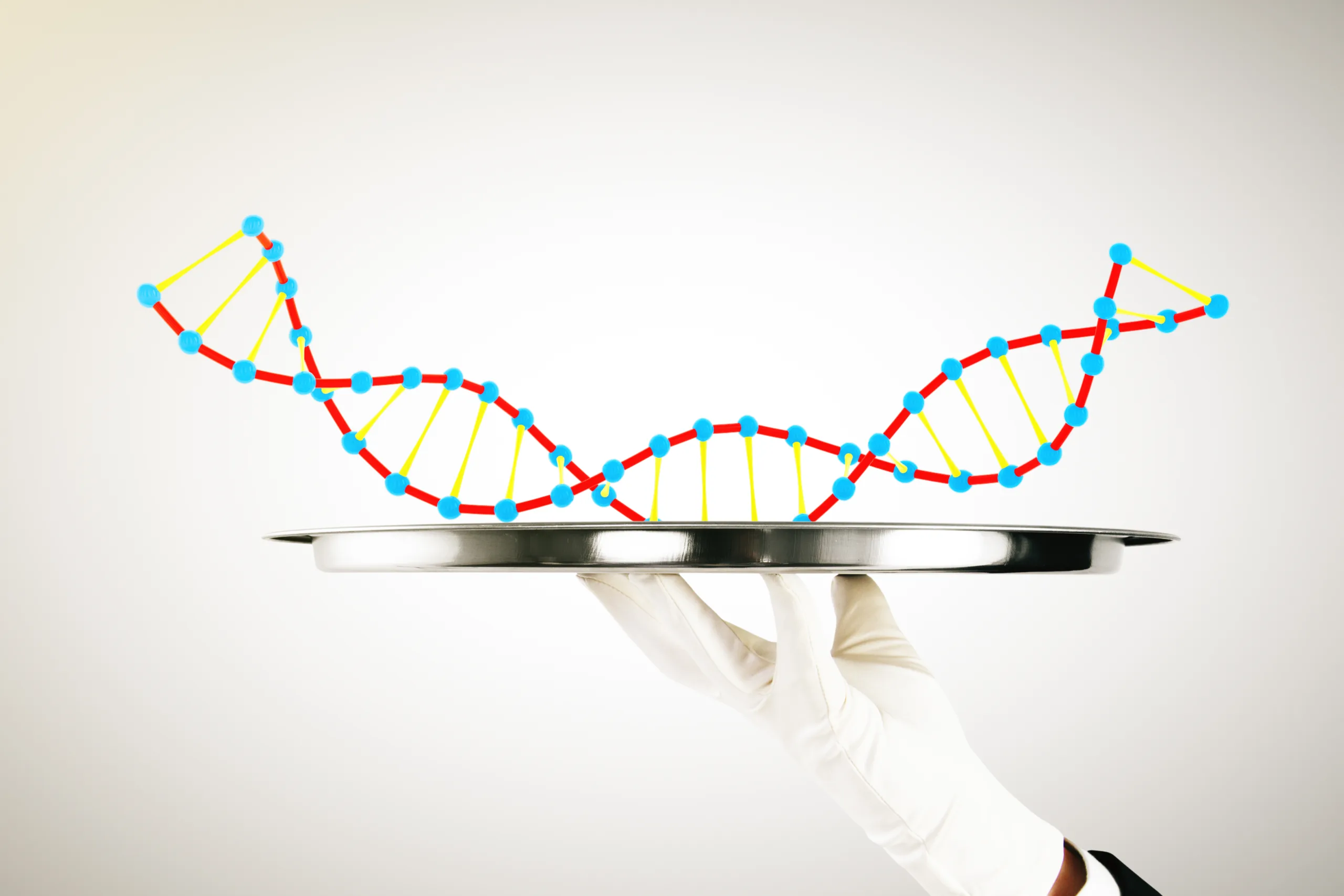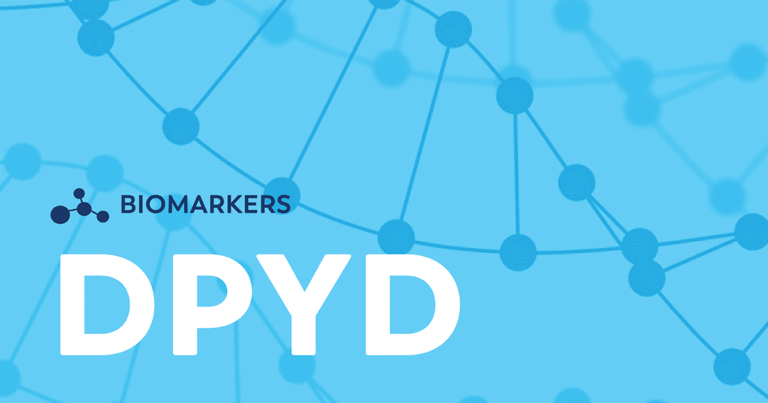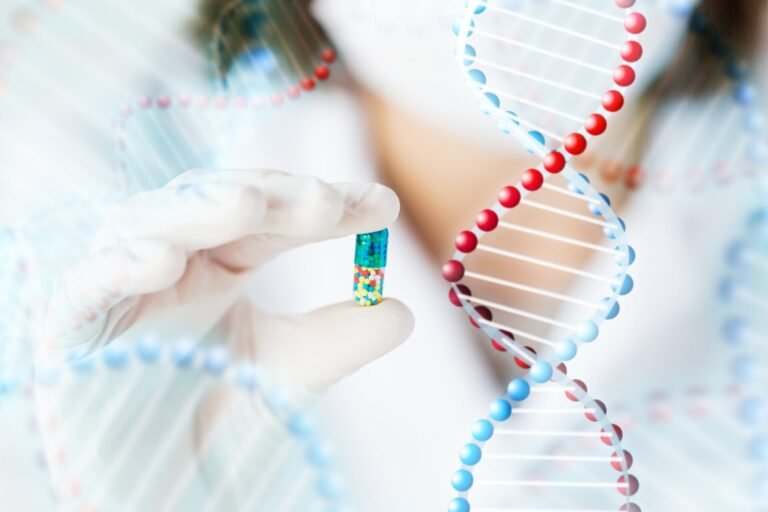What is the Significance of Non-Metabolizing Genes and Why they Should be PGx Tested
In contemporary healthcare, the role of non-metabolizing genes stands out for its impact on drug response, heralding a paradigm shift towards personalized medicine. For Elizabeth, a professional in her 40s, this realization was pivotal. It reshaped her treatment journey, offering a new lease on health.
Elizabeth battled migraines, searching for relief through multiple medications to no avail. A pharmacogenomic (PGx) examination unveiled the root of her struggle, identifying a genetic quirk in a non-metabolizing gene. This anomaly hindered her drug metabolism. With this insight, her treatment was refined, significantly ameliorating her health and reducing complications.
The crux of Elizabeth’s narrative lies in PGx’s potency, especially in dissecting non-metabolizing gene functions within drug responses. It marks a transformative phase, allowing for pinpointed medical regimens. Such tailored interventions are breaking ground, enhancing the efficacy across health landscapes, spanning pain management to severe ailment treatments.
Further illumination into non-metabolizing genes and PGx’s virtues promises in-depth understanding and amplified clinical precision. This enlightens both care givers and patients, offering a roadmap through the intricate realm of customized medical care with assurance and accuracy.
Key Takeaways of Non-Metabolizing Genes and Why they Should be PGx Tested:
- Non-metabolizing genes play a crucial role in how individuals respond to medications.
- Pharmacogenomic (PGx) testing analyzes a person’s genetic profile to predict their response to drugs, enabling personalized treatment plans.
- Genetic variations in non-metabolizing genes can significantly impact drug metabolism, efficacy, and adverse reactions.
- Incorporating PGx insights into clinical practice can reduce healthcare costs by minimizing unsuccessful drug regimens and adverse side effects.
- Understanding the significance of non-metabolizing genes and the value of PGx testing is essential for optimizing patient outcomes.

Understanding Pharmacogenomics (PGx) and Its Role in Personalized Medicine
Pharmacogenomics (PGx) delves into the intricate mechanisms through which genetic variations mold an individual’s drug response. By scrutinizing a person’s DNA, PGx testing augurs how they will react to pharmaceutical substances. Such personalized insights empower healthcare cadres to orchestrate bespoke medication regimens, thus enhancing both the safety profile and efficacy of drug use.
Definition of Pharmacogenomics (PGx)
Pharmacogenomics epitomizes the intersection of personal genetic structure with one’s reaction to medicine. It integrates a profound understanding of genetic variances into the realm of drug therapeutics, paving the path for individualized medical solutions. This in-depth understanding is instrumental in tailoring prescriptions, accounting for each patient’s genetic signature to minimize adverse effects and boost therapeutic outcomes.
Importance of Personalized Medication Treatment
The advent of personalized drug therapy, shaped by PGx insights, represents a paradigm shift from conventional standardized pharmacology. It heralds an era where patient-specific genetic cues guide treatment selection, mitigating the peril of adverse drug events. Consequently, the therapeutic utility of prescribed medications is markedly elevated.
Role of Genetic Testing in Determining Medication Effectiveness
At its core, genetic testing charts a map for medication success by unraveling the nuances of pharmacogenomic responses. It unearths the intricate relationships between genetic markers and drug dynamics, thus informing clinicians’ decisions with unparalleled precision. This integration of PGx into medical protocols equips professionals with detailed insights into genetic predispositions, revolutionizing the approach to tailored pharmacotherapy.
Factors Impacting Response to Medications
A blend of genetic variations, environmental circumstances, and personal lifestyle choices dictate how individuals react to pharmacological treatments. This understanding is pivotal in the administration of targeted, secure, and efficient medical care. It allows healthcare professionals the insight necessary to ensure the well-being of their patients through appropriately customizing therapeutic strategies.
Genetic Variations
The role of genetic diversity in drug metabolism and response is paramount. Variability in an individual’s genetic makeup can dramatically shape medication outcomes and safety profiles. Employing pharmacogenomic testing illuminates the path towards individualized care. By scrutinizing a patient’s genetic blueprint, a clinician discerns potential drug reactions. This knowledge facilitates the precise adjustment of drug regimens, ensuring optimal therapeutic effects.
Environment
External elements like dietary habits, exposure to toxins, and climate conditions further complicate medication assimilation and reaction. They exert their influence on the function of enzymes pivotal in drug metabolism. Consequently, treatment providers must consider the broad spectrum of environmental influences. This awareness aids in the customization of medication plans, diminishing the possibilities of unwanted drug responses.
Lifestyle
Personal choices, such as physical exertion, stress management, and smoking, shape the response to drugs. These decisions have the power to influence drug metabolism, potentially altering the drug’s effects on the body. Therefore, understanding how lifestyle choices interact with drug responses is essential. It enables healthcare professionals to fine-tune their strategies for personalized medication approaches that align precisely with the patient’s requirements.
In the final account, a thorough exploration of genetic, environmental, and lifestyle aspects empowers healthcare personnel. It equips them to navigate the complexities of pharmacogenomics and implement tailored medical strategies. Such an approach not only optimizes patient care but serves to mitigate the dangers posed by adverse drug reactions, anchoring the foundation of competent medical practice.
Non-Metabolizing Genes and Why they Should be PGx Tested
Non-metabolizing genes assume a pivotal role in pharmacological response variations among individuals. Engaged in the intricate processes of drug metabolism and elimination, these genes profoundly influence both therapeutic efficacy and safety. Genetic aberrations within these genes can engender altered metabolic pathways, potentially leading to suboptimal treatment efficiency or an escalation in the probability of adverse drug reactions.
Pharmacogenomic (PGx) testing delves into an individual’s genetic blueprint, encompassing non-metabolizing genes, to prognosticate their medication reaction. This analytical approach empowers healthcare practitioners to refine prescription strategies, customizing protocols in alignment with the patient’s distinct genetic architecture. The indispensability of PGx testing for non-metabolizing genes is echoed in its role within the ambit of personalized medicine, ensuring treatment optimization, adverse event avoidance, and enhancing the treatment’s efficacy.
Integration of PGx insights into the clinical spectrum aides healthcare professionals in transcending the archetypal standardized model towards a bespoke, precision-driven healthcare paradigm. By acknowledging the genomic deviations that shroud individual medication responses, this framework culminates in superior patient outcomes coupled with mitigated fiscal health outlay.
Pharmacogenomic Testing: A Comprehensive Overview
Pharmacogenomic (PGx) testing represents a sophisticated strategy entailing the utilization of genetic data to forecast an individual’s reaction to designated pharmaceuticals. It institutes a personalized lens by dissecting a patient’s genetic blueprint. In doing so, pertinent genetic variations are unearthed, shedding light on how these may influence the outcomes and safety of drug prescription. This paradigm shift in medical management transcends the boundaries of traditional care, amalgamating a patient’s unique genetic pallet with their clinical background, thereby revolutionizing treatment designs.
This diagnostic modality equips clinicians with indispensable data for refining drug choices and dosages, thereby mitigating the dangers of adverse drug responses or therapeutic inefficacies. Its integration into the healthcare framework personalizes medicine, fostering tailored and precise patient care. Enhanced patient results and diminished healthcare expenditures are among the direct dividends of its employment.
| Benefits of Pharmacogenomic Testing | Potential Applications |
|---|---|
|
|
Integrating pharmacogenomic testing within the medical spectrum endows providers with the acumen to administer personalized medicine, thus ameliorating drug response. This practice lessens the menace of adverse drug reactions, fostering superior treatment outcomes for recipients.
Drug-Drug Interactions and Their Impact on Pharmacokinetics
Drug-drug interactions (DDIs) represent a substantial cause of adverse drug events, necessitating a profound comprehension of their repercussions on pharmacokinetics for optimal pharmaceutical care. These interactions manifest when one medicinal component, within an individual’s regimen, induces alterations in the adoption, dissemination, transformation, or excretion of another. Such shifts invariably lead to modifications in the latter drug’s serum levels.
Understanding Drug-Drug Interactions (DDIs)
Alterations in a drug’s absorption, distribution, metabolism, or excretion, under the influence of another, can provoke suboptimal therapeutic effects or escalate the vulnerability to adverse repercussions. The complexity of these interactions derives from a myriad of elements encompassing drug inherent characteristics, the genetic architecture of the patient, and varied physiological states. This multifaceted nature underscores the challenge in predicting and managing the effects of DDIs effectively.
Classification of DDIs and Their Clinical Relevance
The FDA segregates DDIs into classes of strong, moderate, or weak interactions predicated on their intensity and potential clinical impact. Those adjudged as strong or moderate bear substantial clinical importance, given their proclivity to exert significant influence on both the efficacy and safety of involved medicaments. Nonetheless, the clinical relevance of DDIs juxtaposed with an individual’s genetic makeup is pivotal, since genetic disparities can crucially alter drug interactions at a metabolic level. Infusing pharmacogenomic (PGx) insights into DDI evaluations is thereby indispensable for furnishing tailored pharmaceutical treatments and lessening the peril of adverse incidents.
Drug-Gene Interactions: Exploring the Genetic Influence on Drug Response
Drug-gene interactions (DGIs) illuminate the profound impact of genetic makeup on individual responses to pharmacotherapies. Variations in an individual’s genetic code intricately regulate the absorption, distribution, metabolism, and excretion of drugs. Consequently, these biological phenomena engender disparities in drug efficacy and safety profiles among patients.
Examples of Drug-Gene Interactions (DGIs)
An exemplary instance of DGIs underscores the influence of genetic polymorphisms within drug-metabolizing enzymes, prominently the CYP450 family, on medication metabolism. Variants in these enzymes precipitate fluctuating drug serum concentrations, thereby modulating the medication’s therapeutic effects and the vulnerability to adverse reactions.
Impact of DGIs on Medication Efficacy and Safety
Delineating the significance of DGIs is paramount for precision medicine initiatives within healthcare. Integration of pharmacogenomic (PGx) analyses elucidates intricate genetic profiles, empowering clinicians to customize drug regimens effectively. This tailored approach aims to optimize therapeutic efficacy while mitigating drug-related risks.

Drug-Drug-Gene Interactions: A Complex Interplay
At the core of pharmacotherapy lies the intricate relationship between drug-drug interactions (DDIs) and drug-gene interactions (DGIs), culminating in the broader realm of drug-drug-gene interactions (DDGIs). These nuanced interactions profoundly shape an individual’s response to pharmaceuticals by modulating their metabolism and clearance. When a patient’s genomic makeup converges with diverse pharmacological agents, the resultant DDGIs can skew drug serum concentrations, jeopardizing therapeutic outcomes or escalating the likelihood of adverse drug events.
Mechanisms of Drug-Drug-Gene Interactions (DDGIs)
Grasping the underlying mechanisms of DDGIs is instrumental for healthcare professionals in foretelling and mitigating these convoluted interactions. The phenomena, whether through enzymatic inhibition or induction, pivot around the biological multiplication of drug metabolism. In this context, the incorporation of pharmacogenomic (PGx) intelligence enables precise tailoring of pharmaceutical regimens. Insights gleaned from PGx empower prescribers to navigate the labyrinth of DDGIs, offering treatment strategies resonating with the comprehensive analysis of the patient’s singular genetic and pharmacological mosaic.
Clinical Implications of DDGIs
Thorough management of DDGIs is pivotal for enhancing medication efficacy and advancing patient care within the paradigm of personalized medicine. An adept comprehension of the multifaceted interplay of drug-drug-gene interactions empowers healthcare professionals to orchestrate interventions that are both precise and efficacious. Through this lens, tailored therapeutic approaches are engineered, aiming to ameliorate iatrogenic outcomes and refine the overall process of medical care optimization.
Drug-Gene-Gene Interactions: An Emerging Area of Study
The study of drug-gene-gene interactions (DGGIs) is a burgeoning field within pharmacogenomics. Such interactions manifest when an individual’s genetic variations impact multiple drug-metabolizing enzymes, ensuing in modified drug pharmacokinetics and clinical outcomes. This novel paradigm influences treatment success.
Understanding Drug-Gene-Gene Interactions (DGGIs)
Complex interplays in DGGIs may lead to an inefficacy in drug metabolism, bolstering the likelihood of adverse reactions or therapeutic failures. It is paramount for healthcare professionals to discern the intricacies and consequences of DGGIs. Only through this understanding can they effectively address and mitigate their impact on patient care.
Potential Impact of DGGIs on Treatment Outcomes
Integration of pharmacogenomic testing into medical protocols empowers practitioners to discern an individual’s unique drug metabolism trait. Armed with this knowledge, clinicians can tailor pharmacotherapies to align with specific genetic and physiological profiles. This tailored approach towards drug administration is foundational in the realization of personalized medicine.
Phenoconversion: Mismatch Between Genotype and Phenotype
Phenoconversion describes the divergence between an individual’s genotype – the genetic blueprint for drug metabolism – and their actual metabolize drugs capacity. Various non-genetic elements, including but not limited to, inflammation, pregnancy, liver dysfunction, and changes in renal function, play pivotal roles in eliciting this disparity. As drug-metabolizing enzymes undergo modification in response to these variables, deviations from anticipated drug metabolism phenotypes occur.
The understanding of phenoconversion is paramount in the domain of pharmacogenomics (PGx), underscoring the need to integrate both genetic and non-genetic influences into the evaluation of patients’ medication response. Identifying and managing phenoconversion stands at the core of achieving personalized medication treatment. By enabling healthcare professionals to refine their prescription practices, such comprehension is instrumental in bolstering therapeutic efficacy and ensuring superior health outcomes for the populace.
Conclusion
The profound significance of non-metabolizing genes and the role of pharmacogenomic (PGx) testing in effective, safe medication management cannot be overstated. Individual drug responses are markedly influenced by genetic variants in these genes, thereby altering the efficacy and safety of prescribed regimens. PGx testing unlocks a patient’s genetic intricacies, empowering healthcare providers to elevate their precision in prescribing by tailoring interventions to these unique genetic profiles.
This pivot towards customized, precision models of care is a hallmark of incorporating PGx into clinical protocols. Such an approach veers from the historic one-size-fits-all paradigm towards one that is meticulously curated for each patient. Furthermore, an awareness of the multifaceted dynamics of drug-gene interactions, drug-drug interactions, and the phenomenon of phenoconversion is indispensable for the optimization of medication therapy. This knowledge is pivotal in enhancing therapeutic outcomes while mitigating the risks associated with adverse drug events.
Integrating PGx testing and personalized medicine strategies carries the potential to revolutionize patient outcomes, drive down healthcare expenditures, and streamline the application of medication management. This comprehensive approach to understanding non-metabolizing genes and leveraging PGx technology marks a transformative advance in the safety and efficacy of drug therapies. Such innovations stand to significantly enrich the quality of care for patients, as well as the operational efficacy of healthcare practitioners.
FAQ
What is the significance of non-metabolizing genes and why should they be PGx tested?
Non-metabolizing genes are vital in drug response. By scrutinizing one’s genetic structure, PGx testing aims to forecast drug reactions, refining patient treatment plans. Grasping the import of these genes and PGx’s value holds the key to superior patient care.
What is pharmacogenomics (PGx) and how does it help in personalized medicine?
Pharmacogenomics delves into how gene quirks affect drug reactions. It involves parsing DNA to predict drug responses, leading to tailor-made care plans. This approach hinges on customizing treatments to align with each patient’s genetic blueprint.
What factors impact an individual’s response to medications?
Drug outcomes are shaped by genetic traits, surroundings, and lifestyle. Among these, genetic discrepancies significantly influence drug processing. For effective care, a holistic view of these factors is vital in creating personalized, safe drug plans.
Why are non-metabolizing genes critical in how individuals respond to medications?
Essential in drug breakdown and elimination, non-metabolizing genes vary drug effects. Tested via PGx, these genes inform medical teams of personalized drug reactions. Thus, they are crucial for tailored, efficient drug therapies.
What is the purpose of pharmacogenomic (PGx) testing?
PGx testing decodes drug reaction patterns from one’s genetic layout, enabling precise medication adjustments. This personalized care approach identifies genetic elements affecting drug safety and efficacy. It enhances care, trimming health costs.
How do drug-drug interactions (DDIs) impact pharmacokinetics?
DDIs influence how the body processes drugs, altering their levels. The impact varies per interaction and genetic makeup, influencing drug effect. Integrating PGx into DDI evaluation reduces drug reaction risks.
What are drug-gene interactions (DGIs) and how do they impact medication response?
DGIs reflect genetic effects on medication results. Variations change drug fate in the body, affecting efficacy and safety. Grasping DGIs aids in personalized drug choices for safer, effective treatment.
What are drug-drug-gene interactions (DDGIs) and why are they important?
DDGIs alter drug metabolism due to genetic and multiple drug use, influencing doses and effects. Knowing DDGIs from PGx optimizes prescription decisions, personalized to genetic and drug specifics.
What are drug-gene-gene interactions (DGGIs) and how do they impact treatment outcomes?
DGGIs alter drug processing and outcomes through varied genetic enzymes. Their understanding is key in managing treatments effectively. This knowledge optimizes care for each patient.
What is phenoconversion and why is it important in the context of pharmacogenomics?
Phenoconversion denotes genetic vs. actual metabolism mismatch, under non-genetic influences. It underscores the need for a comprehensive view in drug response assessment. Tackling phenoconversion ensures treatment precision and efficiency.





